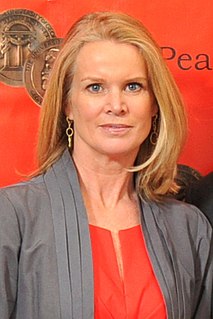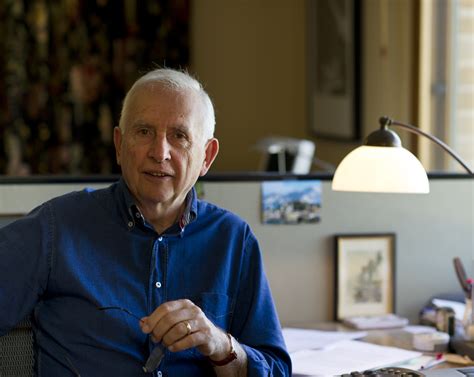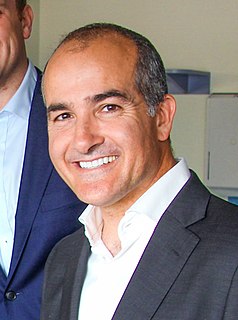A Quote by Dee Hock
An organization's success has more to do with clarity of shared purpose, common principles and strength of belief in them than to assets, expertise, operating ability or management competence, important as they may be.
Related Quotes
To put it another way, I believe that purpose and principle, clearly understood and articulated, and commonly shared, are the genetic code of any healthy organization. To the degree that you hold purpose and principles in common among you, you can dispense with command and control. People will know how to behave in accordance with them, and they'll do it in thousands of unimaginable, creative ways. The organization will become a vital, living set of beliefs.
I think it's really, really important to grow the consensus and to realize that there is always some value that can be shared with another American, on any issue. Starting from those points of common belief and shared values is very, I think, important to forging the consensus that allows these issues to more forward.
Leader and followers are both following the invisible leader - the common purpose. The best executives put this common purpose clearly before their group. While leadership depends on depth of conviction and the power coming therefrom there must also be the ability to share that conviction with others, the ability to make purpose articulate. And then that common purpose becomes the leader.
I'm delighted to be joining INVESCO, an organization that has been growing both in terms of assets under management and the breadth of investment capabilities offered. I see great potential in working with the accomplished investment centers within INVESCO and providing expertise to help develop strategic solutions for our clients.
An organization belongs on a sick list when promotion becomes more important to its people than accomplishment of their job they are in. It is sick when it is more concerned with avoiding mistakes than with taking risks, with counteracting the weaknesses of its members than with building on their strength. But it is sick also when "good human relations" become more important than performance and achievement.
People judge you really quickly, at first just on your facial features. There are two dimensions - warmth and competence. You can think of them as trustworthiness and strength. They're first judging you on warmth; evaluating whether or not you are trustworthy. That's much more important to them than whether or not you're competent.
Talking about improving the culture, I prefer to say "develop" or "evolve" rather than "change". If I walk into a room and say: "we are here to change the organization," it sends shock waves through the group. If I say: "your success to date has come from who you are, to be successful in the future, we need to get to X, let's talk about how we evolve the organization to that point," that is a very different statement. Successful organizational "change" must come from the people. So, recruit them with common purpose, recognize that it will take time, and plow forward.































